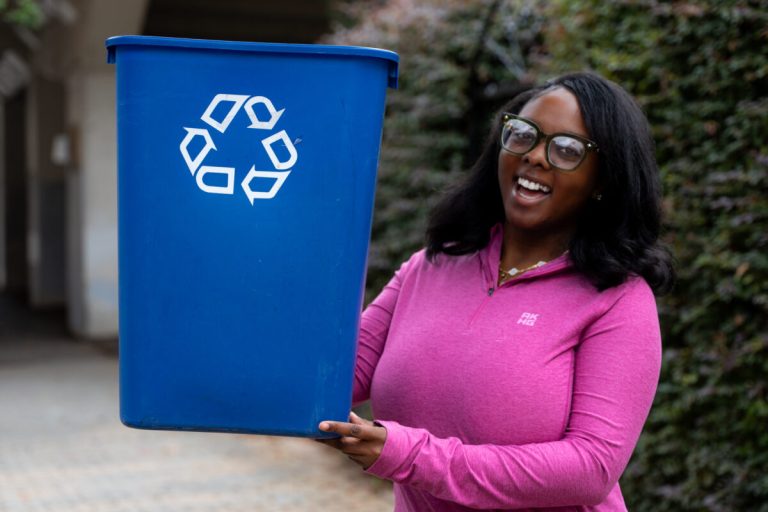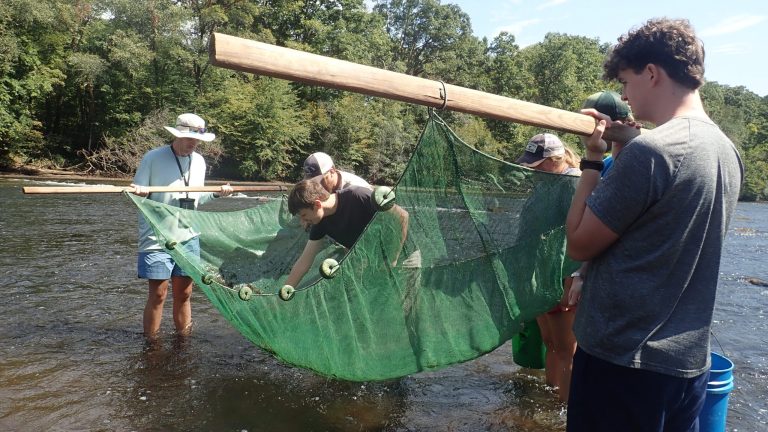Reviewed by: Cindy Hatcher
Fungus is the future for this Auburn grad
Reading time: 4 minutes
Sponsored

Say “agriculture,” and you might think farms and fields. But for Alabama native Harrison Estes, it’s so much more: a field of science that connects what we eat, how we live and the future of human health.
Now a PhD candidate in genetics at the University of Wisconsin, Harrison studies deadly fungal pathogens and searches for new antifungal targets. His work, which could one day lead to new treatments for infections that affect both people and crops, began with a degree from Auburn’s College of Agriculture.
A family tradition
When it came time for Harrison to choose a college, the choice was clear. A third generation Auburn graduate, his family—in his words—bleeds orange and blue. Even his dog, Aurea, is named after the golden eagle who flies over Jordan-Hare Stadium before each football game.
After starting college on a pre-med track, Harrison realized he wanted more hands-on exploration. Then he found the Applied Biotechnology major: think fungi, plant pathogens and bioinformatics. And if you’re like me, you may be wondering what exactly that means.
Here’s how Harrison puts it:
“The best way to think about biotechnology is genetic engineering for practical agricultural, medical and industrial purposes. It’s about making biology work for us in whatever environment we’re in.”
Harrison Estes
He credits Auburn’s Department of Entomology and Plant Pathology for opening his eyes to how research can have global impact.
“Food insecurity is a major challenge in the world. We’ll need to double food production by 2050, and biotechnology gives us the tools to do that by creating more resilient plants and animals.”
Harrison Estes
Fostering research through mentorship

Beyond coursework, what shaped Harrison most was the chance to do real research, which led him into the lab of Dr. Coleman, where he began studying fungi.
“Fungi are fascinating because they bridge agriculture and medicine, and Auburn gave me the space to explore that connection.”
Harrison Estes
He also points to faculty like Dr. Beckmann, whose applied biotechnology and scientific illustration courses taught him how to both analyze complex systems and communicate them clearly.
“Those two classes are honestly why I am where I am today. They taught me not just how to understand biology, but how to apply and explain it. That was such an essential step in my journey into academia, and it really laid the foundation for me to pursue research.”
Harrison Estes
From Auburn to Wisconsin + beyond

(Harrison Estes)
The skills Harrison gained at Auburn have already taken him far, including earning a National Science Foundation Graduate Research Fellowship, a prestigious award that supports future leaders in science and engineering.
At Wisconsin, he’s continuing to push the boundaries of what biotechnology can achieve, currently studying how fungi handle metals like copper and iron during infection.
But if there’s one takeaway from his path, it’s that agriculture at Auburn isn’t confined to one field.
“Overall, the program really prepares you to think critically, use the latest resources and solve problems that matter.
Whether you’re interested in farming, food systems, genetics or medicine—It’s a foundation that can take you anywhere.”
Harrison Estes
His advice to students or aspiring researchers?
“If you’re even a little interested, just ask a professor about their work. That’s what I did.
Don’t be scared, because they’re looking for eager, ambitious students like you. So be curious and ask.”
Harrison Estes
For students ready to make an impact, Auburn College of Agriculture offers the tools, mentors and opportunities to make it happen.
Sponsored by:





